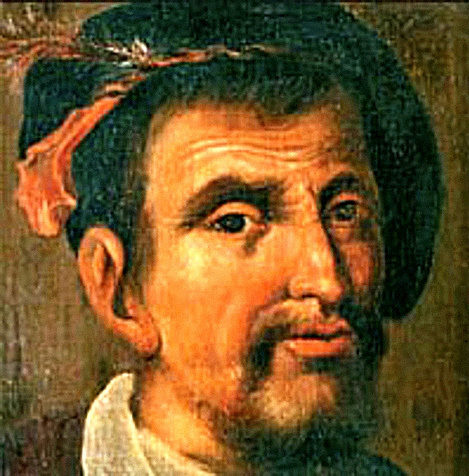The eyes almost did not decipher what was written, an unequivocal sign that he was ready to die. Finally, the pilgrimage was over. So many years in search of a book ... But not of any one, but of the catalog of catalogs. The library, "unlimited and periodic", was built. In fact "if an eternal traveler crossed it in any direction," Borges concluded the story, "it would prove over the centuries that the same volumes are repeated in the same disorder (which, repeated, would be an order: the Order)."
For Edward Wilson-Lee , Babel's library is a cruel joke: how to order an infinite library !? Ah, the Order ... Another thing, of course, is to collect a copy of each book written on the face of the earth in the middle of the rales. Or at least try, to erect a kind of universal library later. An ambitious tool designed to understand the transcendental changes of an era. That, the historian defends, is not only not impossible, but it was what he sought, with an interpretable success, Hernando Colón (Córdoba, 1488). A feasible task, he says, but, alas, daunting.
In Memorial of the Wrecked Books (Ariel), Wilson-Lee narrates the ungrateful? Odyssey of how Columbus wanted to take advantage of the tidal wave of the printing press to gather the world of books and, advancing more than 500 years to Google Books, forge a sort of rudimentary search engine where to navigate and consult any written or drawn work. In life he treasured more than 15,000 documents, including copies and incunabula: 4,000 of those volumes are available to the interested today in the Colombian Library, located in the cathedral of Seville. But, and here is the greatest importance of his mission, Hernando classified more than 3,000 books financing an army of readers that summed up and ordered absolutely every work , now a bestseller , now the booklet that printed the madman of bass. An inventory as finite as unbeatable for only two hands, structured by themes and organized alphabetically, in which the price was even recorded or where they had been acquired. A milestone of the time with which, without realizing it, almost breaks the information paradigm after admitting that a library without order is nothing more than a dead library.
"He had a vision of how he would change knowledge, instead of changing it himself," says Wilson-Lee. Columbus was an extemporaneous, an attentive visionary who fled from the sense of threat posed by certain of his contemporaries the exponential increase in printed information. On the contrary: whoever carried out the deed that he created thought Hernando would be considered a hero. A hero! Almost like his father , he thought ... Because by now the reader will know that Columbus is not an unnoticed surname.
"Christopher Columbus deserves neither unconditional admiration nor professed hatred"
Hernando was a library builder, diplomat, cartographer ... he worked in a geographical encyclopedia, prepared a Latin dictionary and perhaps was immersed in the cultivation of the world's first botanical garden. Who knows. And, in the midst of so much occupation, he still took time to be one of the greatest biographers of a father of whom he should not be a son . Illegitimate offshoot of the conqueror , Hernando's adventures are those of Christopher. A complicated and fascinating relationship that was recorded in his writings after accompanying him in many of his trips. Hernando was spying on him from envy and admiration. And while one dreamed of changing the understanding of his era circumnavigating the world, which he never achieved, another thought that the person who brought together all the information in the universe would gain enormous power. Power determines everything and Hernando sought to answer any unanswered question, but not to satisfy an intellectual drive, but because the information, already then, was power. This evidences that his was not, alone, the goal of a scholar. His interest was not born from the content, but from the claim to control the flow of information . But, paradoxes of life, he died anonymously with his project torn off and his stoned legacy while his father survived with his frustrated.
His writings on Christopher Columbus are an attempt to save the parent who idolized from oblivion, creating a heroic figure that the world should also venerate. "It is far from being objective" but that does not imply, explains Wilson Lee, "that the information in the biography is not true." In fact, his testimony is a source of incalculable courage to understand the true motivations of Columbus, although Hernando decided to remain silent about "many things that would undermine his father's heroic story."
Of course, the historian clarifies, although "the atrocities committed in the name of the empire should not be ignored or forgotten," cannot be attributed directly to Columbus, more immersed in circumnavigation than in conquest. "He certainly committed terrible acts, but the genocide of the native peoples" does not derive from his acts . "Colón [Cristóbal] deserves neither unconditional admiration nor professed hatred."
According to the criteria of The Trust Project
Know more- Cordova
- Seville
- history
Education The Board detects almost 300 suspected fraud in schooling in Andalusia
Health Alert Three other pregnant women who took food contaminated with Listeria
Health alert Third fatality due to the listeriosis outbreak in Andalusia that already affects 196 people

